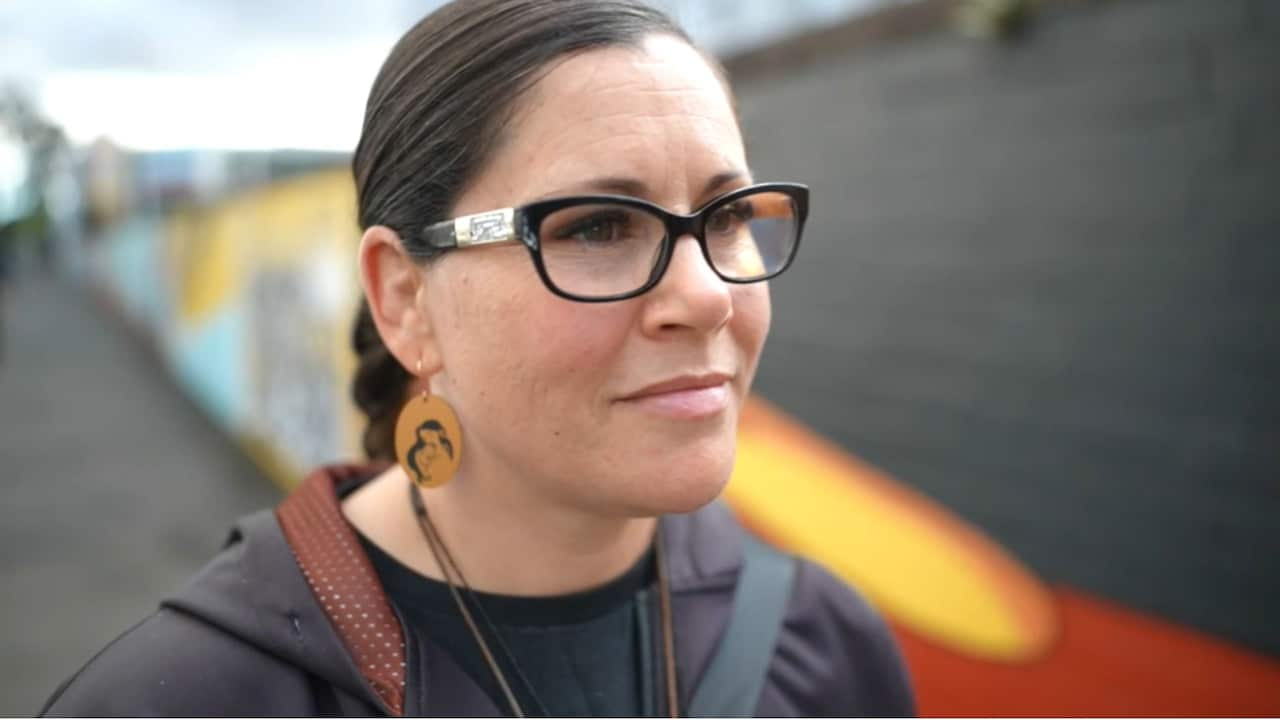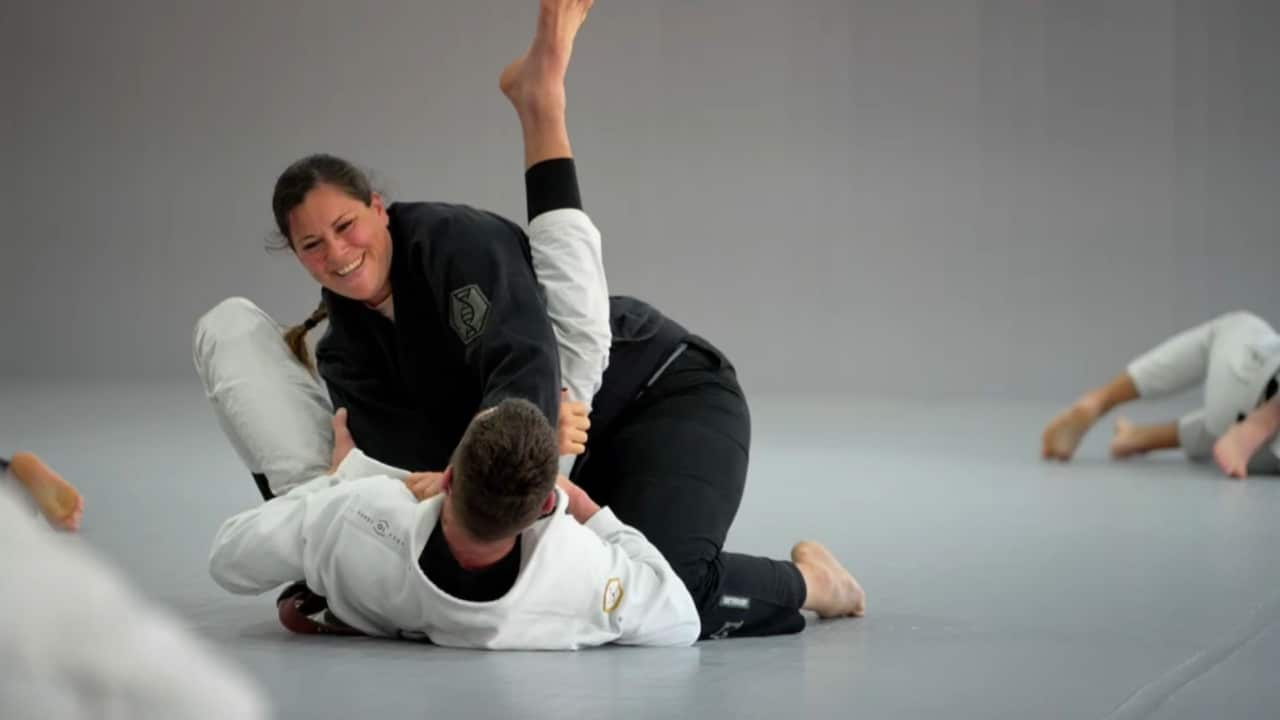After 17 years, less than 15 per cent of Closing the Gap targets are on track to be met. Karla Grant hosts this special NITV Insight, asking what's working to improve First Nations peoples' lives? Watch episode Closing the Gap on SBS On Demand.
Growing up on Barkindji Country, I was a proud Aboriginal girl with mixed heritage whose identity was constantly challenged.
My childhood was filled with paradoxes and intersections; connection and belonging in one breath, hardship in the next.
But there were safe people and places anchoring me — my nan, Elders, aunties and uncles, country, culture, and community-run spaces.
Swimming at the local swimming pool with my siblings and cousins, and spending time by the river on Country are some of my strongest childhood memories.
It was also from the water — a place of safety, guidance and Dreaming — where I first felt my ancestors call to me as a child.
So, when I faced challenges growing up, I knew I carried a compass far older and stronger than any colonial system.

In high school, I was told on one occasion that I was more likely to end up dead or pregnant than I was to finish school.
At the same age, one of my teachers taught me that I was more than my pain and that my path was mine to choose.
Fuelled by the duality of those experiences, I wanted to challenge the victim narrative and write a story of power instead.
Becoming the world champion
During my late teens, I faced deep challenges.
These years took a toll, and I found myself repeating Year 12 — learning that strength is sometimes choosing to begin again.
Life guided me to Brazilian jiu-jitsu when I was 19. It was at the intersection of martial arts, culture, and healing that I began to reclaim my power.
I lost my mum at just 20 years old and navigated complex family relationships that tested my spirit.
When my mind was unravelling, jiu-jitsu gave me discipline — helping me release the weight of the world through sweat, strategy, and flow.
The focus also helped me get back on track academically, and I went on to earn three university degrees.
I reconnected to my truth and to my ancestors. The mats became a ceremony of healing.
I didn't want my children to inherit my pain; I wanted them to see transformation. Motherhood gave my training a direction.
Jiu-jitsu and culture gave me a way through, while education gave me a way forward.

Over the past two decades, I've stepped on and off the mats — and along the way, became the first Aboriginal woman to win three Brazilian jiu-jitsu world titles. Now, I'm walking the path toward becoming a black belt world champion.
But this journey has never been about mats or medals.
It's about remembering who I am: a woman, a mother, and a First Nations warrior walking in her Dreaming, showing what's possible beyond survival.
'Trauma was never the birthplace of my story'
Every time I step onto the mats, it feels like stepping onto Country — or stepping onto a stage. It's sacred ground.
Each time I bow and enter, I bring my ancestors, children and culture with me.
The mats hold my sweat and my song.
Winning world titles is the easy part. The real work has been taking responsibility for wounds I did not cause, but I needed to heal to break cycles and free the generations to come.Shantelle Thompson
Winning world titles is the easy part. The real work has been taking responsibility for wounds I did not cause, but I needed to heal to break cycles and free the generations to come.
That same spirit guides my work as Aunty Shan through the Kiilalaana Foundation, which I founded to uplift the next generation of Indigenous women and youth.
Trauma was never the birthplace of my story; Dreaming was.
'We are not statistics'
These achievements are milestones, not destinations. They are living proof of something deeper: that Aboriginal women carry power and potential that cannot be erased.
Aboriginal people are too often invited only to share our trauma — our stories dissected as case studies of pain or poverty. When that's all the world sees, it becomes the story written about us, not by us.
Too many still define us through those narrow lenses — instead of through our voices, experiences, and truth.
We are not statistics. We are storytellers — creative, strong, and full of brilliance, humour, and heart.
On the mats, I fight. When I weave, I feel connected to Country and my grandmothers, and when I write, I listen. And when I speak my story, I reclaim my voice.
As First Nations people, our voices are our lineage. Sharing my story breaks the silence that tried to control us — it is how I heal and lead.
I'm open about my journey so others know they are not alone.
I've faced violence, battled with mental illness, and walked through hardship. I've also built organisations, stood on world championship podiums, and raised children who know who they are — not how the world would define them.
Our stories are not tragedies; they are truth-tellings of becoming. My story is not one of brokenness — it is one of fire.
And I refuse to reduce myself or my people to pain.
Readers seeking support for mental health can contact Lifeline First Nations Helpline on 13 YARN or at https://www.13yarn.org.au/. Readers can also contact Beyond Blue on 1300 22 4636. More information is available at beyondblue.org.au. Embrace Multicultural Mental Health supports people from culturally and linguistically diverse backgrounds.
And for more stories on sex, relationships, health, wealth, grief and more, head to Insightful — an SBS podcast series hosted by Kumi Taguchi. Follow us on the SBS Audio App, Apple Podcasts, Spotify, or wherever you get your podcasts.
Insight is Australia's leading forum for debate and powerful first-person stories offering a unique perspective on the way we live. Read more about Insight
Have a story or comment? Contact Us


